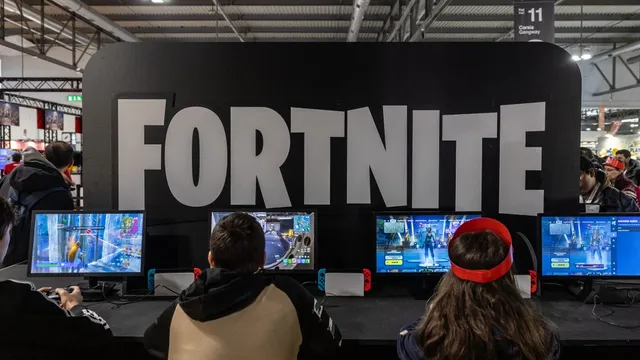
Epic Games pays $245 million in refunds for deceptive Fortnite purchases
2025-06-28 19:12- The FTC announced that Epic Games will distribute over $126 million in refunds to players misled into making unwanted purchases.
- The settlement resulted from complaints about the game's deceptive design practices, affecting around 37 million users.
- The total amount of funds disbursed related to the case has reached nearly $200 million, underscoring the importance of consumer protection in the gaming industry.
Express your sentiment!
Insights
In late June 2025, the Federal Trade Commission announced that Fortnite players would receive significant settlement refunds after being misled into making unauthorized in-game purchases. This case, which has garnered attention throughout the gaming community, revolves around claims made against Epic Games, the developer of Fortnite, for employing confusing design choices that tricked roughly 37 million players into making unwanted purchases. Complaints highlighted that users were charged while navigating the game's interface, suggesting that many consumers had no intention of completing such transactions. To remedy the situation, federal regulators revealed that they would be distributing over $126 million to those impacted, with payments expected to arrive between June 25 and June 26, 2025. This latest distribution is part of a broader settlement agreement in which Epic Games ultimately agreed to pay $520 million in fines and penalties. Previous efforts in December 2024 saw the refund of over $72 million to more than 629,000 players who reported similar issues. The total amount of refunds issued has now reached nearly $200 million as a result of ongoing efforts to rectify these deceptive practices. Many of the participants in these refunds include parents and guardians who found their children charged without proper consent. The FTC stressed that the refund process remains accessible for players, with the application deadline extended until July 9, 2025. Eligible applicants must provide their Epic Account ID and a claim number, which can be obtained from the FTC. They emphasized that no payment or sensitive account information is required to claim a refund. The FTC initially launched its investigation based on consumer complaints regarding in-game purchases that occurred without prior user agreement, which ultimately led to both the significant settlements and ongoing vigilance over gaming companies in the future. This case raises broader questions about consumer protection in the gaming industry as the technology becomes increasingly intertwined with financial transactions, making it essential for developers like Epic Games to ensure their practices align with fair and transparent billing standards.
Contexts
Deceptive billing practices in video games have become a pressing issue, raising concerns among consumers and regulators alike. As the gaming industry has evolved, so too have the methods used by developers and publishers to monetize their products. The rise of microtransactions, loot boxes, and subscription models has led to a landscape where players often feel misled or exploited. Many consumers report feeling pressured to spend additional money after purchasing a game, leading to frustrations and claims of deceptive practices. This situation is exacerbated by the lack of transparency around the odds of obtaining desired items in loot boxes, which can lead to gambling-like behaviors, particularly among younger audiences. The rapid expansion of digital marketplaces has also contributed to the prevalence of deceptive billing practices. Many video games are now released in a partially finished state, with the expectation that players will purchase additional content or upgrades post-launch. This "games as a service" model can lead to situations where consumers feel they are not receiving the full value of their initial purchase and are being encouraged to spend more money to access the complete experience. In some instances, players have discovered that they are charged for content that was previously available in earlier versions of a game or that key features are locked behind paywalls. Consumer advocacy groups and regulatory bodies are beginning to take notice of these issues, with calls for greater oversight of the gaming industry. In some jurisdictions, there have been proposals for legislation that would require clear disclosures about in-game purchases, the odds of winning loot box rewards, and the potential for ongoing costs associated with games. The industry must engage with these concerns transparently, finding a balance between profitability and ethical responsibility. Developers have a unique opportunity to build trust with their audiences by adopting fair pricing practices and resisting the urge to exploit consumer psychology to drive sales. Ultimately, the future of video game monetization hinges on the industry's response to these deceptive billing practices. As players become more informed and vocal about their experiences, game publishers will need to adapt or risk losing their customer base. Emphasizing ethical practices and consumer protection will not only enhance player satisfaction but could also establish a more sustainable market in the long run. In an era where digital consumption is ubiquitous, addressing these billing practices with integrity is crucial for the gaming industry to flourish.